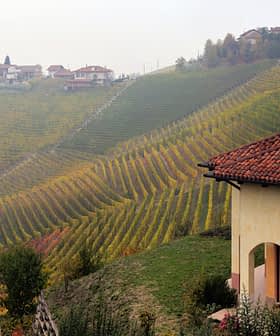Many Mediterranean countries are at risk of depleting one of the planet’s biodiversity hotspots, according to a new report.
The Agrobiodiversity Index Report found that the current industrial farming approach paired with the changing climate is damaging the environment and food diversity in the Mediterranean basin.
Losing diversity in these regions can potentially mean losing a wealth of genetic resources for food and agriculture.
Extensive monocultures and outdated farming practices are drivers of the current depletion risks.
“What we found is that diversity in Mediterranean food markets is higher than the global average, while indeed the diversity in production systems is well below potential,” Sarah Jones, a researcher at the Alliance of Biodiversity International and International Center for Tropical Agriculture and lead author of the latest report, told Olive Oil Times.
See Also:World Bank Investing Nearly €30B to Improve Global Food Security“This means that many farms are producing the same crops, like grapes, olives, maize, sunflowers, and that there is a lack of natural infrastructures in and around farmland, things like hedgerows, woodlots, forest remnants and wetlands,” she added.
The goal of the report’s authors was to analyze the status of plants, animals, microorganisms, soil and agriculture in 10 countries bordering the Mediterranean Sea.
The report analyzes the state of agrobiodiversity, looking at food consumption, production, and genetic resource conservation. It also investigated the policies enacted by Algeria, Egypt, France, Italy, Lebanon, Libya, Morocco, Spain, Syria, and Tunisia.
According to the researchers, the current approach comes from a half-century of growing support for intensive farming.
“Where field sizes have increased as hedgerows are cleared to make it easier to use large machinery, seed companies have encouraged farmers to grow high-yielding varieties that often demand large quantities of water and fertilizer and lack nutritional value,” Jones said. “Food value chains have favored farms that can provide large quantities of a single product.”
“The problem is that these intensive agricultural systems are a root driver of global and local biodiversity loss, water pollution and soil degradation,” she added. “At the same time, food systems are failing to provide everyone everywhere with access to nutritious, balanced diets.”
According to the authors, maintaining and fostering diversity in food systems is crucial to any strategy aimed at making food systems sustainable.
While agrobiodiversity is vital for the planet, locations such as the Mediterranean are inherently more biodiverse, affecting the region’s natural food diversity.
The report noted that between 15,000 to 25,000 species thrive in the Mediterranean basin, 60 percent of which are unique to the area. The basin is also considered a biodiversity center for many cultivated food crops.
“The Mediterranean is one of these areas, known as Vavilov centers of diversity, and is the origin of many food crops, including asparagus, barley, chestnuts, leeks, olives and rapeseed,” Jones said. “Losing diversity in these regions can potentially mean losing a wealth of genetic resources for food and agriculture, limiting our options for adapting to future climate and pests and diseases, and making food less colorful, less nutritious, less interesting.”
“This last part may sound trivial, but in the Mediterranean, taking pleasure in cooking, eating, and talking about food is a big part of everyday life, so losing food diversity also means we risk losing a vibrant part of our culture,” she added.
Climate change is impacting the Mediterranean agricultural world, which is reacting to water shortages and temperature increases by choosing crop varieties and livestock breeds that can fare better in the new climate.
“A lot of different interventions will be needed to help our food systems adapt to climate change, but making better decisions about what to grow is fundamental,” Jones said. “This applies to the plants that will be harvested and those that won’t, but that can support production in other ways within farms and across whole landscapes.”
“For example, mulching and increasing soil organic material is a key water-saving strategy and improves soil health, but it is bad for carbon emissions if the organic materials have to be transported from far away,” she added.
“Growing plants to use as mulch, or sourcing this from a nearby farmer, is a much better strategy and good for the local economy,” Jones continued. “This could include a mix of grasses and flowers that have the co-benefit of helping sustain pollinators and biological pest controls.”
Researchers have found that all countries analyzed have enacted some policies to preserve agrobiodiversity. Jones cited plans to increase agricultural landscape complexity in Algeria, Lebanon and Italy and conservation strategies for crop wild relatives in Morocco and Spain.
“Something countries need to do more of is provide farmers with subsidies, loans, training, and insurance, to convert to, and sustain, diversified, chemical-free farming,” she said. “It is economically difficult for farmers to break away from intensive farming systems to practice more sustainable alternatives, and government support really helps.”
Useful policies might include providing markets for local, under-utilized, diverse foods, for example, through public procurement schemes in ministries and school cafeterias and through tax reductions on locally sourced foods and foods that are produced in sustainable ways.
“These types of policies need to happen to bring about real change in our food systems, and change is needed everywhere irrespective of country location or natural levels of agrobiodiversity because simplified, intensive agricultural production is simply not sustainable on any level,” Jones said.
The report provides recommendations on what practices and policies countries could strengthen or implement to mainstream agrobiodiversity into their food systems.
“[It] will be used to stimulate discussions at the country level on the policy actions needed to integrate agrobiodiversity into the food system better and increase adherence to the Mediterranean diet,” Jones said.
“Apart from the production side, we also need to make sure we are conserving in gene banks and botanical gardens all the different varieties that may be useful in the future because they are better adapted to future climates or are more resistant to new pests and diseases that appear as climates change,” she concluded.









